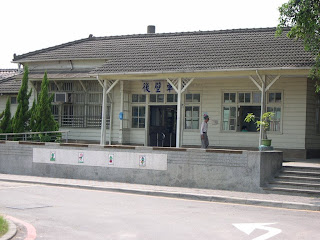As concern about climate change grows, an increasing number of travelers are trying to reduce the environmental impact their journeys have on the world. Some people purchase carbon offsets - certificates representing a reduction of one metric ton of carbon dioxide emissions - and a few even eschew planes for forms of transportation that have less of an impact on the environment, such as the train.
Others choose to stay in eco-friendly hotels. This option is becoming much more feasible in Taiwan, thanks to trends in the lodging industry and a recent Environmental Protection Administration campaign to highlight Taiwan's greenest hotels. The EPA's 2008 National Eco-friendly Hotel and Business Group Competition attracted 43,000 online participants over a period of two months...
To read the rest of this article, go here.
A blog for aspiring freelancers
-
Anyone interested in travel writing or freelance writing may want to take a
look at the blog I've created to publicize my workshops.
8 years ago




